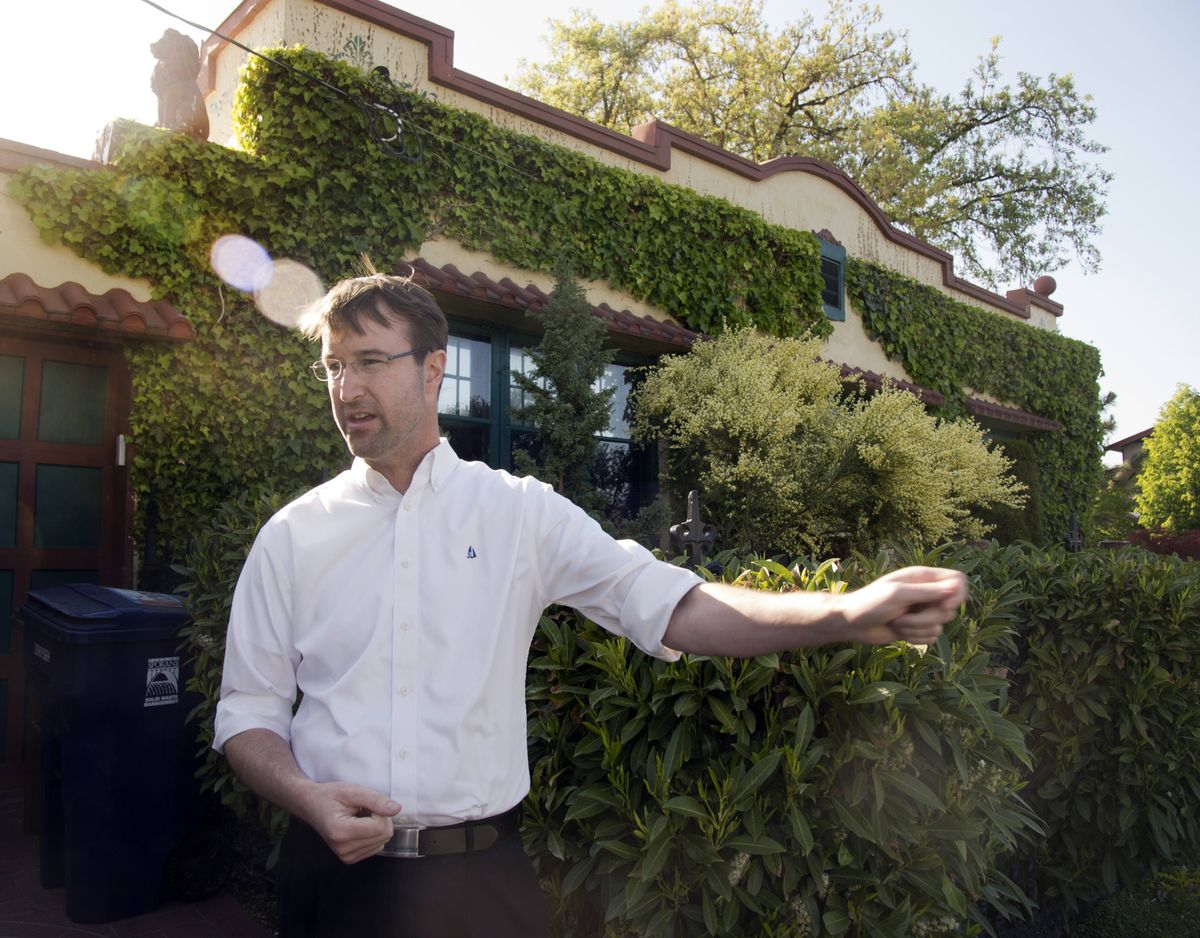Spokane adopts new rules for short-term rentals

Keith and Kendra Kelly describe their short-term rental listed on Airbnb as an “urban oasis.”
Indeed it is. Their Spanish mission-style home at Indiana Avenue and Walnut Street often is booked by Internet bargain-seekers looking for something other than another standard hotel.
The couple live a few blocks away, so guests get the house completely to themselves, and the Kellys are close enough to make running the house convenient.
Now, the Kellys and others are stepping out of the shadows of government regulation and preparing to take advantage of a newly adopted Spokane ordinance that seeks to legitimize the popular but legally challenging short-term rental industry.
Spokane City Council members voted unanimously May 4 to approve the short-term rental ordinance applying to rentals of less than 30 days. It puts Spokane at the forefront of cities looking for ways to regulate otherwise prohibited commercial activities such as overnight and short-term lodging in residential neighborhoods.
Airbnb, with more than a million Web listings worldwide, currently has about 120 rentals available in Spokane.
That doesn’t include listings on other Web services such as Roomorama.
“We get folks from all over the world who stay here,” Keith Kelly said during an interview on the sidewalk outside his rental. “There are a lot of people who just want their own space.”
Kelly was one of a number of landlords who received cease-and-desist letters from the city, threatening him with a $300-a-day fine if he continued receiving guests. The penalty threat was put on hold pending development of the new ordinance.
“The industry needs to be legitimized in Spokane,” he said.
The home goes for just under $99 a night Sundays through Thursdays and $149 a night on Fridays and Saturdays.
It has two bedrooms, one bath and 1,100 square feet of space on the main floor. It was completely restored with historic flair by the previous owners, David Brickner and Richard Magers.
The outside of the house is fully landscaped with choice plantings. The basement has a fitness area.
The Kellys stay out of the rental house when guests have checked in.
During the interview last week, Kelly’s neighbor stopped by to talk. She said the guests who stay in the house are a “very nice clientele.”
The ordinance adopted last week allows short-term rentals in residential zones.
It creates two categories of short-term rentals. One category is for lodging only, which requires a business license and permit. Lodging is limited to two adults per bedroom.
Neighbors across the street and on either side of the rental need to be notified of the use.
A second category is for holding commercial meetings such as receptions, luncheons or weddings. That type of business requires a conditional-use permit.
Kelly was a member of a task force that developed the regulations over the past 11 months.
Rebecca Mack, another task force participant, said she has been renting space since 2011 and has found that guests enjoy the system.
“It is a terrific lodging option for people,” she said.
During last week’s testimony before the City Council, Heather Shauvin said her guests often dine out at locally-owned restaurants in the neighborhood where her rental is located. She said her neighbors tell her they enjoy meeting the guests, who have access to their own entrance and a garden overlook.
Spokane City Councilman Mike Allen, who led the effort to write the ordinance, said one potential problem is a state requirement that rental bedrooms have fire sprinklers. However, sprinklers are not required when the guest rents the entire house.
He said he is working with state fire code officials to enact a variance on the sprinkler requirement for houses with just one or two bedrooms for rent.
Allen also said he expects permit and fees to run from $100 to $400 a year depending on the type of rental and whether it will offer food and other services.
Prior to last week’s vote, Councilman Jon Snyder requested and won an amendment to review the ordinance after one year.
Airbnb did not respond to a request for comment on the ordinance.